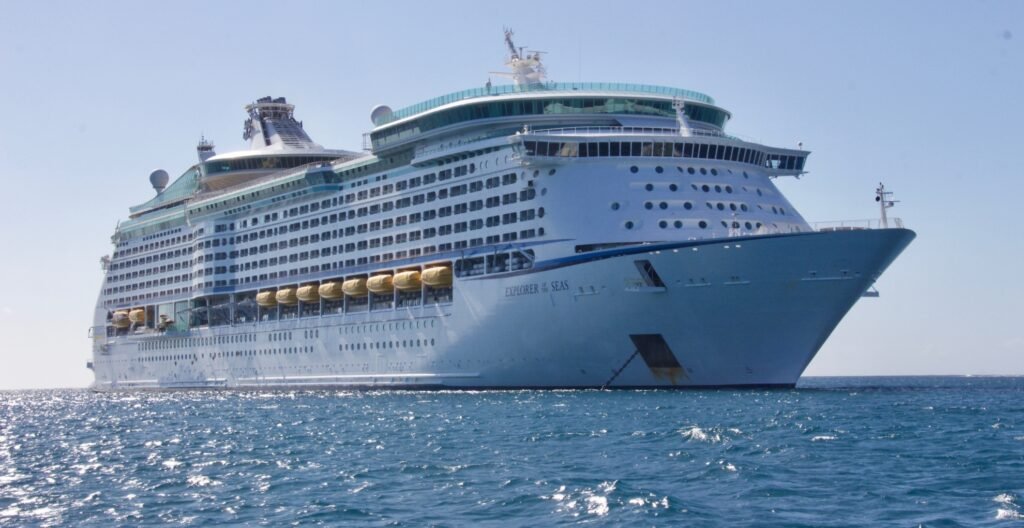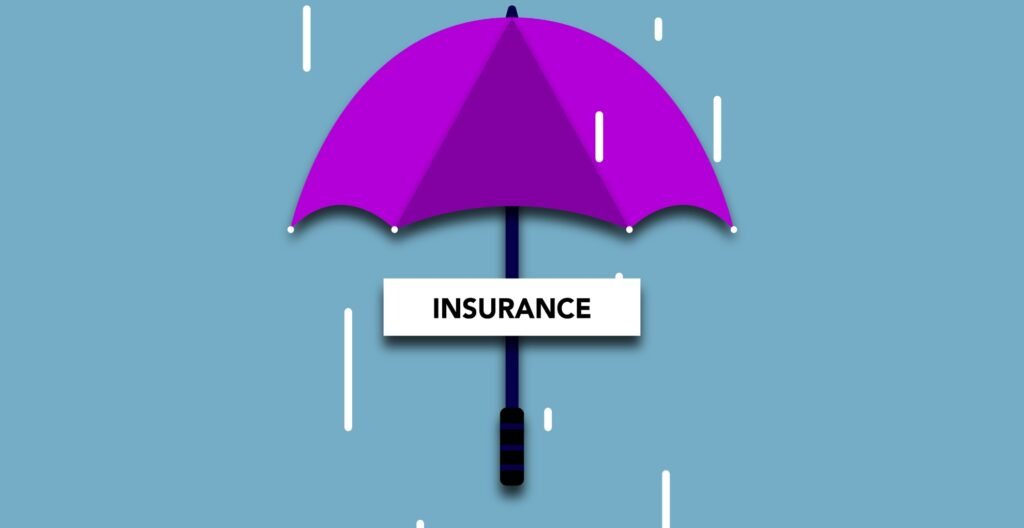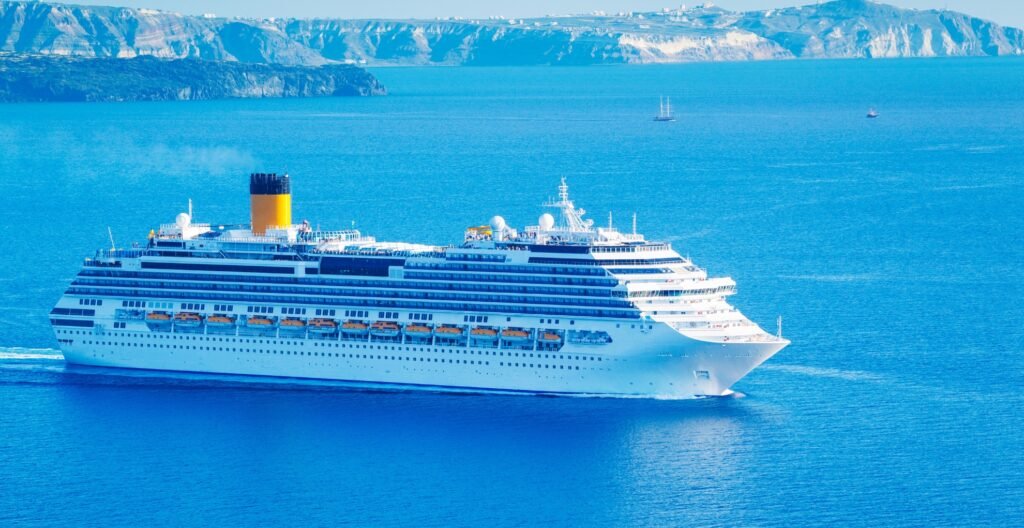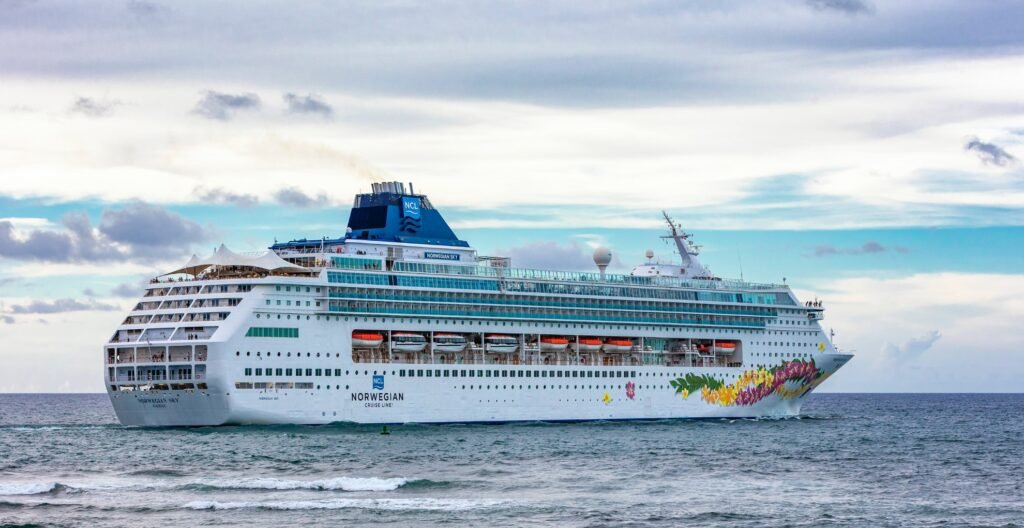Table of Contents
Embarking on a cruise vacation is an enchanting experience, but with it comes the need to consider the pros and cons of purchasing travel insurance. From missed connections to unexpected medical bills, cruise insurance offers a safeguard against a multitude of unforeseen events. However, is cruise insurance worth it or you’ll end up wasting your money, let’s find out.
Balancing the cost of insurance rates against the protection it offers is essential. Whether you’re considering travel insurance to cover your cruise or relying on benefits from a credit card, it’s crucial to assess the value of insurance offered by your travel agent and compare it to independent insurance quotes. Ultimately, the decision hinges on your personal risk assessment and the extent of coverage from your health or medical insurance.
Understanding Cruise Travel Insurance: A Deep Dive
Travel insurance for a cruise is designed to address the unique contingencies of sea travel. This specialized form of coverage can provide financial protection for a range of potential issues, from trip interruptions to medical emergencies onboard or at ports of call. When exploring the vast ocean or winding through a river cruise, having travel insurance to cover your cruise can mean the difference between a minor hiccup and a financial disaster, should the unexpected occur.
Given the considerable investment in a cruise, it’s imperative to understand the nuances of what your policy entails. A travel insurance company can offer plans tailored to the specific needs of cruise passengers, ensuring that you can enjoy your adventure with the peace of mind that comes from knowing you’re protected against the unpredictable.

The Basics of Cruise Coverage
At the heart of a travel insurance plan for a cruise is the commitment to keep passengers protected during their journey. Cruise coverage typically encompasses a variety of scenarios, including medical emergencies that require attention while at sea. The importance of such coverage cannot be overstated, as accessing healthcare in remote areas and international waters can be both challenging and costly.
Cruise travel insurance extends beyond basic medical care, often including benefits like reimbursement for lost luggage and assistance during travel delays. By covering these common mishaps, passengers can focus on the joys of their cruise without the nagging worry of potential pitfalls.
Standard Inclusions: What’s Typically Covered?
When traveling internationally on a cruise, a host of standard inclusions in your travel insurance can make all the difference in how you experience your journey. Here’s a detailed list of what’s typically covered:
- Medical Emergencies: Coverage for unforeseen illnesses or injuries, including visits to a medical facility on board or at a port. This provision extends to ensuring you receive timely and appropriate care without bearing the full financial burden.
- Emergency Evacuations: Financial assistance for the costs of emergency medical evacuations, which can be exorbitant without insurance. This provision ensures that in the event of a serious medical situation requiring evacuation, you can navigate it without undue financial strain.
- Lost or Delayed Luggage: Reimbursement for the inconvenience and expense of lost or delayed baggage. This coverage alleviates the stress caused by having to replace essential items or wait for delayed baggage to arrive.
- Travel Delays: Compensation for additional accommodation and meal expenses incurred due to a delayed or canceled cruise schedule. Whether due to adverse weather conditions or unforeseen circumstances, this provision ensures you can navigate disruptions with minimal impact.
Furthermore, a comprehensive travel insurance plan may include:
- Trip Cancellation: Reimbursement for prepaid expenses if you need to cancel your cruise due to covered reasons. This provides financial security against unexpected events that may force you to alter your plans.
- Trip Interruption: Coverage for the costs to return home if your cruise is cut short for a covered reason. This ensures you are covered for unexpected circumstances that may necessitate an early return.
- Missed Connection: Coverage for additional travel expenses if you miss your cruise departure due to a covered delay. This provision further safeguards your journey, providing compensation for unforeseen delays.
These inclusions provide a safety net, allowing cruisers to indulge in their sea adventure with added confidence. With comprehensive travel insurance, you can embark on your international cruise knowing that you are protected against unforeseen circumstances, enabling you to focus on creating unforgettable memories.

Cruise Insurance Costs: How Much Should You Budget?
When planning for a cruise, budgeting for trip insurance is a prudent step. Insurance costs can vary widely based on the length of your cruise, the destinations you will visit, and the level of coverage you select. As you calculate your total vacation budget, factoring in insurance is as essential as accounting for any on-shore excursions or specialty dining experiences.
Typically, you can expect to spend anywhere from 4% to 10% of your total trip cost on insurance, depending on the comprehensiveness of your policy. For those with pre-existing medical conditions, premium rates may be higher, but the investment can be invaluable for the peace of mind it brings.
Considering the potential financial risk of medical emergencies or trip cancellations, allocating funds for trip insurance can be a wise financial decision, ensuring that your sea adventure remains a source of cherished memories rather than financial strain.
Factors Affecting Travel Insurance Pricing
A myriad of factors influence the cost of travel insurance, compelling travelers to consider these critical determinants:
- Destination: Higher-risk destinations or those far from home can increase insurance rates. Traveling to regions with higher incidences of natural disasters, political instability, or limited healthcare facilities poses greater risks for insurers, resulting in higher premiums.
- Duration: Longer trips typically result in higher premiums due to the extended coverage period. The longer you’re away, the more exposure there is to potential risks, such as medical emergencies or trip cancellations, leading insurers to adjust premiums accordingly.
- Age of Travelers: Older travelers may see higher costs, as they are statistically more likely to file a claim. Advanced age often correlates with increased susceptibility to health issues, making insurers perceive older travelers as higher risks to insure, thus reflecting in higher premiums.
- Pre-existing Medical Conditions: Insurers take into account any pre-existing conditions, which can affect the level of risk and therefore the price. Individuals with pre-existing medical conditions may require more frequent medical attention while traveling, leading insurers to adjust premiums to mitigate potential claims.
Other considerations include:
- Type of Coverage: Opting for a policy with comprehensive benefits, such as CFAR (Cancel for Any Reason) coverage or increased medical protection, will reflect in the premium. Enhanced coverage options provide greater financial protection but typically come at a higher cost.
- Cost of the Trip: The higher the total trip cost, the higher the insurance premium, as the potential payout is greater. Insurers calculate premiums based on the overall trip cost, as they need to account for potential reimbursement for canceled or interrupted trips.
- Additional Riders: Choosing add-ons like adventure sports coverage or increased valuables protection can also bump up the cost. Additional riders offer specialized coverage tailored to specific needs but come at an additional expense.
By understanding these pricing factors, cruisers can better anticipate the cost of trip insurance and make an informed decision that aligns with their budget and travel needs. Evaluating these factors allows travelers to strike a balance between comprehensive coverage and affordability, ensuring they are adequately protected throughout their journey.

Evaluating Your Current Protection: Do You Already Have Coverage?
Before taking the plunge and purchasing additional cruise insurance, it’s essential to evaluate the protection you may already possess. Many travelers overlook existing policies that could offer some level of coverage for their sea adventure. For example, your existing health insurance could provide coverage for medical treatments, and homeowners’ policies might cover lost luggage. However, emergency medical evacuation, often necessary in the most critical of situations, is not typically included in these policies and warrants separate attention.
Assessing your current insurance portfolio is the first step in determining the need for supplemental cruise insurance. This evaluation can reveal gaps in coverage that could leave you exposed to significant financial risk during your travels.
Credit Card Travel Benefits and Limitations
Many credit cards offer travel protections that can serve as a form of a travel insurance plan, but it’s important to understand the benefits and limits of the insurance provided. Common benefits can include:
- Reimbursement for non-refundable travel expenses due to trip cancellation or interruption.
- Coverage for lost or delayed baggage, easing the cost of replacing essentials.
- Secondary rental car insurance, providing an extra layer of protection on the road.
Despite these advantages, limitations are equally important to consider:
- Often, credit card benefits offer lower coverage limits, which may not fully cover high travel expenses.
- Medical emergency coverage is typically not included, a significant consideration when at sea.
- Claims processes can be more complex and may require paying expenses upfront.
Understanding the scope of your credit card’s travel insurance can guide you in deciding whether additional coverage is necessary for a worry-free cruise experience.
Comparing Travel Insurance Policies
When exploring trip insurance options for a cruise vacation, it’s essential to scrutinize the fine print of each policy. Comparing the coverage limits, deductibles, and exclusions can reveal stark differences. For example, some policies may offer comprehensive COVID coverage, while others might skimp on such critical protection. It’s not just about the costs—it’s about ensuring that the insurance offered aligns with the specific needs of your sea journey.
Purchasing travel insurance becomes a strategic decision, especially when considering potential issues like missed connections or itinerary changes. A careful comparison will often show that policies vary in how they handle these situations. It’s imperative to choose a plan that provides peace of mind, knowing that the unexpected won’t derail your dream vacation.

The Realities of Cruise Mishaps: Risks and Unforeseen Events
Cruise vacations are not immune to the unpredictable, and unforeseen events can quickly turn a dream trip into a distressing ordeal. From sudden illnesses to personal emergencies back home, the risks are real. One must consider these potential mishaps when deciding whether cruise insurance is worth the investment. With the right coverage, travelers can mitigate the financial impact of such unfortunate events.
Medical emergencies, in particular, underscore the value of having robust coverage. The cost of medical treatment at sea or an emergency medical evacuation can be astronomical, easily reaching tens of thousands of dollars. Cruise insurance that includes comprehensive medical coverage while traveling can be a financial lifesaver in these dire circumstances.
Furthermore, unexpected events like trip cancellations due to unforeseen circumstances or interruptions caused by inclement weather can disrupt travel plans and result in financial losses. With cruise insurance, travelers gain peace of mind knowing they’re protected against such mishaps, allowing them to enjoy their cruise with confidence.
Medical Evacuations at Sea: Expensive and Complex
When a medical emergency arises on the open ocean, the logistics and cost of an emergency medical evacuation can be staggering. Without appropriate coverage, passengers may face a daunting bill, as such evacuations often require specialized aircraft and medical personnel. These operations are not only complex due to the remote location of cruise ships but also because they must be coordinated swiftly to ensure the patient’s wellbeing.
It’s a chilling reality that many travelers may overlook when booking a cruise. A policy with robust medical evacuation coverage can provide critical assistance, managing the coordination and financial burden of getting you to the nearest medical facilities with adequate care. It’s a stark reminder of the serious investment in safety and peace of mind that cruise insurance can offer.
Navigating Weather Uncertainties: When Nature Takes Charge
Cruising to multiple destinations often means encountering varied weather conditions, some of which can be severe enough to disrupt travel plans. Storms at sea can lead to missed ports, delayed departures, and even trip cancellations. Such weather uncertainties are an integral part of the cruising experience, and being prepared for them financially with cruise insurance can make all the difference.
Weather-related disruptions can incur additional travel costs, from unexpected hotel stays to rebooking flights. With cruise insurance, travelers can reclaim some of these expenses, alleviating the stress of weather-induced changes. It’s about more than just the money; it’s the comfort of knowing that a storm won’t wash away the value of your carefully planned vacation.

The Benefits of Specialized Cruise Insurance Coverage
When considering cruise insurance, the benefits of a specialized policy can be quite extensive. Here are some key advantages of specialized coverage:
- Protection against trip cancellation or interruption, which can save you from losing your investment if you have to cancel for a covered reason.
- Coverage for medical emergencies, including those requiring evacuation, providing a safety net against exorbitant medical costs.
- Compensation for travel costs incurred due to unforeseen delays, such as extra accommodations and meals.
- Assistance with lost or stolen luggage, ensuring that your belongings are protected or replaced.
These specialized coverages are tailored to the unique needs of cruise travel, where the risks can differ significantly from other types of trips. By opting for a policy that caters specifically to the world of cruising, passengers can embark on their journey with a deeper sense of security.
Ultimately, the decision to invest in cruise insurance must be weighed against the potential financial risk of going without. Although it’s an additional expense upfront, the coverage offered can be invaluable in protecting your travel costs and overall vacation experience.
Why Standard Travel Insurance May Not Suffice
Standard travel insurance policies often fall short when it comes to the specific needs of a cruise vacation. They may not cover cruise-specific events such as missed ports due to weather or mechanical issues. Furthermore, they might not offer the comprehensive level of medical coverage while traveling that a cruise might necessitate, especially considering the limited medical facilities onboard.
This gap in coverage can leave travelers exposed to significant financial risks. Cruise-specific insurance, on the other hand, is designed to fill these gaps, providing tailored protection that can make all the difference when the unexpected occurs. It’s an investment in certainty in an environment where many variables are beyond the traveler’s control.
Cruise-Specific Perks: From Missed Ports to Itinerary Changes
Cruise-specific insurance goes beyond the basics, offering perks that cater to the unique aspects of cruising. One such perk is coverage for missed ports, ensuring that if your ship can’t dock due to weather or other issues, you’re compensated. Additionally, cruise insurance often includes benefits for itinerary changes, which can disrupt planned activities and shore excursions.
Flight delays are another concern for cruisers, especially when the departure port is far from home. Cruise insurance can step in to cover the costs of catching up to the ship at the next port, should you miss embarkation. Such tailored benefits reinforce the value of a cruise-specific policy, addressing the distinctive challenges of the world of cruising.
The peace of mind these perks provide is priceless. Knowing that you have financial protection against the unexpected allows you to enjoy the splendors of the sea without the nagging worry of “what if?” It’s this assurance that underscores the worth of cruise-specific insurance for many seasoned travelers.

Shopping for the Best Cruise Insurance: What to Look For
When it comes to finding the best cruise insurance plan, there are several key factors to consider. Look for a policy with generous coverage limits that match the value of your trip and personal needs. Ensure that medical coverage while traveling is sufficient, particularly for emergency situations that may require hospitalization or evacuation.
Cruise insurance worth its salt should also offer evacuation benefits and missed connection coverage, protecting you from the substantial costs associated with medical emergencies and travel hiccups. Additionally, consider the timing and flexibility of purchasing insurance after booking your trip; some providers may offer more comprehensive options if purchased within a certain timeframe after making your initial deposit.
Here’s a checklist to guide you in shopping for cruise insurance:
- Compare coverage limits and ensure they align with your investment.
- Verify that medical evacuation coverage is included.
- Look for missed connection coverage to safeguard against travel delays.
- Consider providers like World Nomads known for comprehensive travel insurance.
- Review evacuation benefits to understand the extent of assistance offered.
- Assess the flexibility of insurance after booking, in case plans change.
Top Travel Insurance Providers for Cruises
Several travel insurance companies stand out when it comes to offering comprehensive cruise travel insurance policies. Travel Guard is renowned for its robust coverage plan, which includes protection for medical treatment, lost luggage, and medical evacuation. Their policies are designed with the specific needs of cruise passengers in mind, ensuring that the medical facilities on cruise ships are complemented by extensive on-shore support.
When booking your trip or booking a cruise, it’s wise to review the options from these top providers. Cruise lines typically offer their own insurance, but these may not provide the same level of financial protection as third-party insurers. USA Today and other trusted sources often highlight the importance of finding a comprehensive travel insurance plan to cover lost or stolen items, trip interruptions, and medical emergencies, emphasizing the need for thorough research before setting sail.

Making the Decision: Is Cruise Insurance the Right Call for You?
When considering whether cruise insurance is a beneficial investment, travelers must weigh the potential risks against the financial outlay of the premium. A cruise vacation is a significant expenditure, and unexpected events can arise that may threaten your planned adventure. Cruise insurance offers protection against such unforeseen occurrences, but the value is contingent on your personal tolerance for risk and the specific terms of the policy.
It’s essential to scrutinize the cost of the policy relative to the overall trip expenses. For some, the peace of mind that insurance provides is worth the additional cost. For others, particularly those willing to absorb potential losses, it may be deemed an unnecessary expense. Ultimately, the decision hinges on a calculated assessment of the potential benefits of having coverage versus the certainty of the insurance cost.
Weighing the Cost Against the Potential Benefits
Deliberating over the acquisition of trip insurance involves a cost-benefit analysis. The cost of cruise insurance varies, but it generally represents a fraction of the total trip cost. Benefits can include coverage for trip cancellations, interruptions, medical emergencies, and even lost luggage. These advantages can potentially save thousands of dollars and alleviate the stress associated with travel hiccups.
However, the benefits must be carefully compared to the likelihood of needing to use the insurance. Factors such as the traveler’s health, destination, time of year, and even the cruise line’s own cancellation policy can influence this decision. If the odds of encountering a trip disruption are low, or if the traveler has sufficient alternate coverage, opting out of additional insurance might make more sense.
Personal Considerations: Health, Trip Investment, and Peace of Mind
Personal health is a critical consideration when deciding on cruise insurance. Travelers with pre-existing conditions or those concerned about onboard medical care may find the investment in insurance reassuring. Additionally, the financial commitment to the cruise—flights, accommodations, and onboard expenses—warrants protection, as unforeseen events can lead to substantial financial loss.
Peace of mind is another intangible yet vital benefit. Knowing that you are covered for various contingencies can enhance the enjoyment of your trip. This psychological comfort may be particularly valuable for those embarking on lengthy or exotic cruises, where the potential for complications could be higher. Balancing these personal factors with the cost of insurance will guide you to a decision that aligns with your priorities and travel style.
Getting Started with Cruise Insurance
To initiate the process of acquiring cruise insurance, begin by evaluating different insurance policies and providers. Look for comprehensive coverage that addresses your specific concerns. Once you’ve selected a suitable policy, the steps to secure it are straightforward:
- Obtain a quote by providing details about your trip, such as the destination, duration, and total cost.
- Review the policy terms carefully, paying close attention to coverage limits, exclusions, and deductibles.
- Complete the application form with your personal information, including any relevant medical history.
- Make the payment to finalize the purchase of the policy. Be sure to receive a confirmation and a copy of your policy documents for safekeeping.
These steps ensure that you are adequately prepared before setting sail. It’s also prudent to check the policy purchase deadline, as some providers require insurance to be bought within a certain timeframe from making the initial trip deposit.
The Verdict on Cruise Insurance
After thorough consideration, many travelers find that cruise insurance offers a layer of protection that enhances their travel experience. Providers such as Travelex Insurance and Berkshire Hathaway Travel Protection offer specialized coverage tailored to the unique aspects of cruising. They provide for situations like missed connections due to severe weather, reimbursement for personal items if bags are damaged or delayed, and compensation for trip delays.
The decision on whether travel insurance is worth the investment ultimately depends on individual circumstances. For those who’ve invested a considerable sum into their cruise vacation, the assurance that comes from having a safety net can be invaluable. Whether it’s a medical emergency at sea or a last-minute cancellation, having the right policy can save both money and distress.
In conclusion, if you value the reassurance that comes from being prepared for every eventuality, cruise insurance can be the right choice. By carefully evaluating your needs and choosing a policy that offers the coverage you require, you can set sail with confidence, knowing that you are protected against the unpredictable nature of travel.

Hi, I’m Patricia—a lifelong travel enthusiast with a passion for luxury cruises. Over the years, I’ve experienced some of the world’s most celebrated ships and itineraries, and I love sharing my knowledge with fellow cruise lovers. Whether you’re looking for destination ideas, advice on the best cruise lines, or tips for a smooth sailing, my goal is to help you make the most of your time at sea. With two grown children who share my love for travel, cruising has been a family affair, and I’m here to share what I’ve learned.




